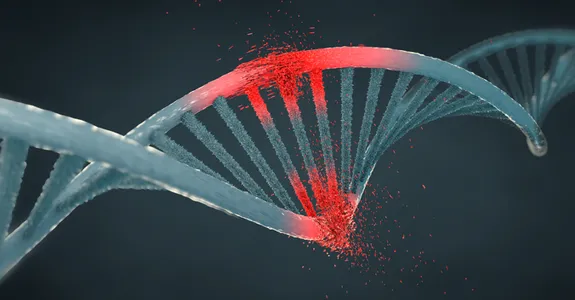
Genomic instability contributes to many diseases, such as cancer, neurodegenerative disease, and developmental disorders, but it also underlies many natural processes including aging, evolution, and antibody diversification. Dr. Karlene Cimprich's lab is focused on understanding how cells maintain genomic stability, with an emphasis on the DNA damage response (DDR). This is a complex, multi-faceted response that requires cells to sense the presence of DNA damage within the genome, as well as to “choose” and coordinate a range of downstream events and outcomes. These include effects on DNA repair, transcription, and DNA replication, as well as cell cycle arrest, apoptosis, and senescence.
The lab is particularly interested in understanding how DNA damage is identified and resolved during DNA replication, when the genome is particularly vulnerable due to stalling of the replication fork at naturally arising and induced DNA lesions, structures or protein-DNA complexes. Stalled replication forks are unstable and can be processed in aberrant ways, leading to double-strand break formation, which is known to drive chromosomal translocation and rearrangements in cancer cells. Indeed, replication stress, a result of slowing replication fork progression, is commonly observed in cancer cells due to loss of the DDR or oncogene activation.
The lab studies the DDR using cultured mammalian cells, as well as cell-free extracts derived from the eggs of the frog Xenopus laevis together with a variety of techniques. Their goal is to understand how the DDR is initiated, how this pathway is integrated with the processes of DNA replication and transcription, and how cells recover from DNA damage.
Specific areas of current interest are:
Checkpoint Activation and Signaling. They are interested in understanding how the DDR is initiated, and how it regulates DNA replication and DNA repair. In particular, they are interested in how stalled replication forks are stabilized, so as to prevent further DNA damage, and how replication resumes when forks stall frequently as in cancer cells. The Cimprich lab has identified new factors involved in these processes and ongoing projects relate to studying the roles of these factors and other known DDR proteins in these processes.
DNA Damage Tolerance. DNA damage tolerance (DDT) pathways promote the completion of replication when a fork stalls by allowing bypass of the lesion, an event that leaves repair to a more convenient time. Although DDT pathways suppress fork collapse, thereby avoiding deleterious DNA breaks, bypass can be mutagenic. They are interested in understanding the mechanisms involved in DDT, and how the cell balances mutagenic and non-mutagenic DDT pathways.
New Pathways for Genome Stability/Human Disease. Recently, they performed a genome-wide siRNA screen to define the processes and proteins that protect cells from DNA damage, particularly during DNA replication. They are currently characterizing proteins identified in this screen with interesting ties to genome maintenance and human disease. One such protein is Nek8/NPHP9, a protein kinase that the lab has shown to prevent DNA damage at stalled forks by regulating CDK activity. Their findings have provided exciting molecular insight into a novel link between the replication stress response and kidney diseases, including renal ciliopathies.
Transcription, RNA, and DNA Damage. Results from their genome-wide screen indicate that RNA is a prominent and underexplored source of genome instability in cell. Specifically, they found that defects in some RNA processing genes lead to DNA damage through the formation of toxic RNA-DNA hybrids and R-loops. The lab is interested in studying how these structures arise, how they lead to DNA damage, and their physiological function. They are also interested in understanding how cells deal with transcription complexes during DNA replication, as these can act as replication fork barriers and promote fork arrest.





